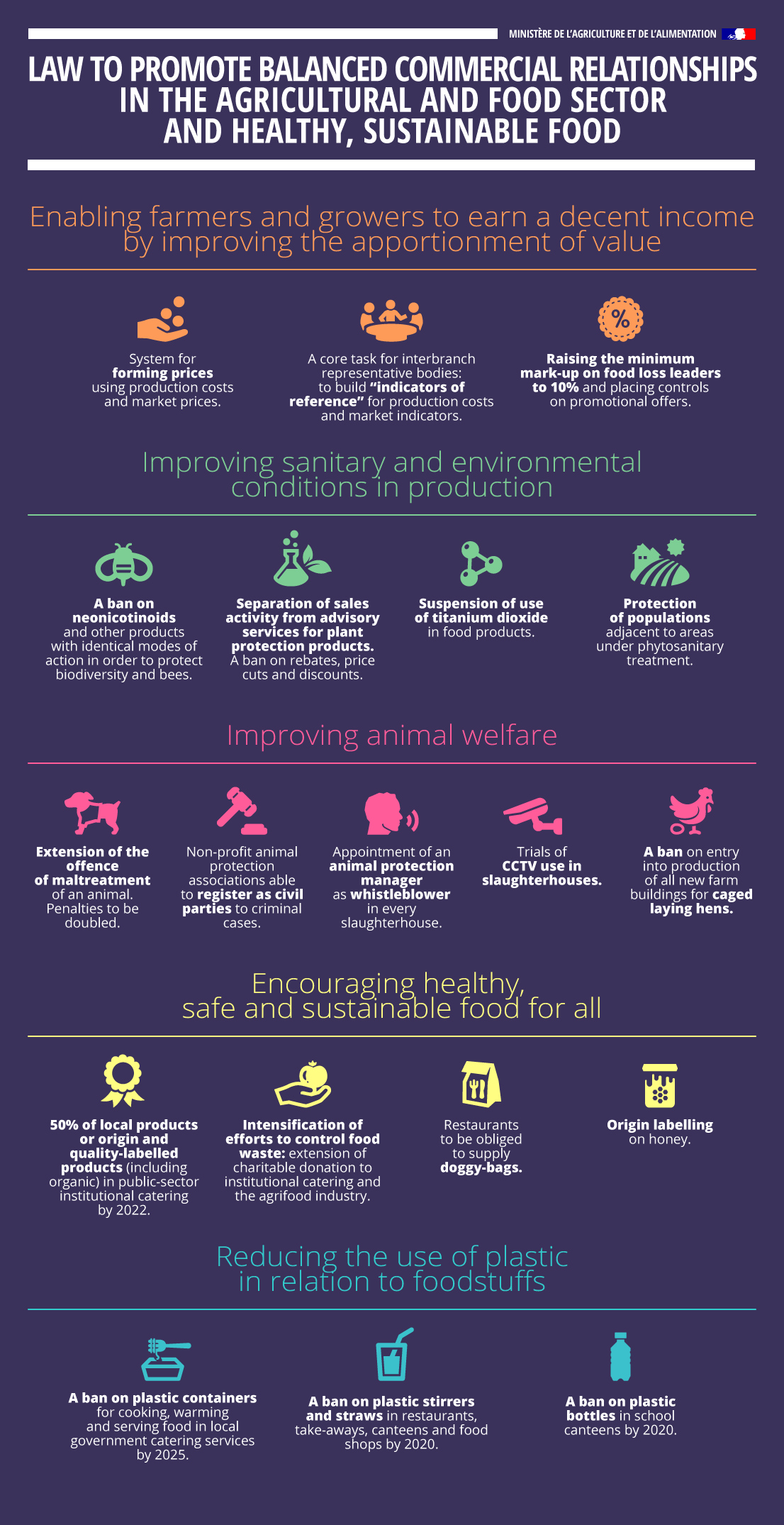Infographics - Law to promote balanced commercial relationships in the agricultural and food sector and healthy, sustainable food
Partager la page

Law to promote balanced commercial relationships in the agricultural and food sector and healthy, sustainable food
Enabling farmers and growers to earn a decent income by improving the apportionment of value
- System for forming prices using production costs and market prices;
- A core task for interbranch representative bodies: to build “indicators of reference” for production costs and market indicators;
- Raising the minimum mark-up on food loss leaders to 10% and placing controls on promotional offers.
Improving sanitary and environmental conditions in production
- A ban on neonicotinoids and other products with identical modes of action in order to protect biodiversity and bees;
- Separation of sales activity from advisory services for plant protection products. A ban on rebates, price cuts and discounts;
- Suspension of use of titanium dioxide in food products;
- Protection of populations adjacent to areas under phytosanitary treatment.
Improving animal welfare
- Extension of the offence of maltreatment of an animal. Penalties to be doubled;
- Non-profit animal protection associations able to register as civil parties to criminal cases;
- Appointment of an animal protection manager as whistleblower in every slaughterhouse;
- Trials of CCTV use in slaughterhouses.
- A ban on entry into production of all new farm buildings for caged laying hens.
Encouraging healthy, safe and sustainable food for all
- 50% of local products or origin- and quality-labelled products (including organic) in public-sector institutional catering by 2022;
- Intensification of efforts to control food waste: extension of charitable donation to institutional catering and the agrifood industry;
- Restaurants to be obliged to supply doggy-bags;
- Origin labelling on honey.
Reducing the use of plastic in relation to foodstuffs
- A ban on plastic containers for cooking, warming and serving food in local government catering services by 2025;
- A ban on plastic stirrers and straws in restaurants, take-aways, canteens and food shops by 2020;
- A ban on plastic bottles in school canteens by 2020.